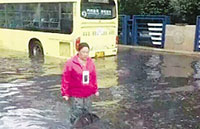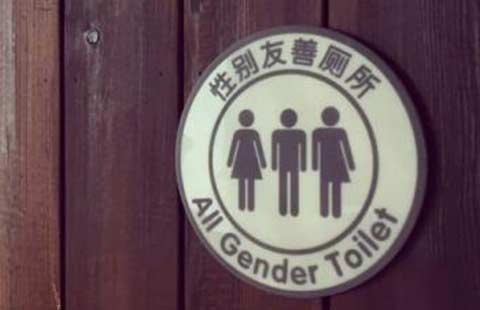New life for monks in rebuilt monasteries
(Xinhua) Updated: 2012-11-16 17:26XINING - The Dontson Monastery has bid farewell to decades of isolation.
Young monks, including Jigme Tongdrup, have moved from small makeshift tents to the rebuilt Sakyapa monastery in the quake-hit Yushu Tibetan Autonomous Prefecture in northwest China's Qinghai Province.
As part of the ongoing construction project, amid 5,000-meter-high mountains surrounding it, the days of drilling frozen rivers for water have ended thanks to newly-installed pipelines.
The government-funded project means tap water, electricity, roads and communications services are available for 87 monasteries, including Dontson, which was damaged by the deadly earthquake, that struck Yushu in April 2010. The 7.1-magnitude quake claimed 2,698 lives and injured more than 12,000.
"Watching the 500-year-old sutra hall and monks' apartments become dilapidated overnight, I felt overwhelmed by grief," Dechen, director of Dontson's Management Committee recalls.
The 42-year-old, at times, felt he would not see the monastery re-established because of a lack of money.
Dontson, like other monasteries in the prefecture, used to be financed by donations from residents in the neighborhood. The government has implemented a policy under which lamaseries are financially independent.
But being located in Small Surmang, a remote and scarcely populated town in Yushu County, Dontson received only 40,000-80,000 yuan (about 6,416-12,832 U.S. dollars) annually before the earthquake.
Dechen said it was "a far cry from the amount needed for rehabilitation."
He was surprised when the government announced to invest 990 million yuan in renovating the damaged monasteries and housing the homeless after the earthquake.
By the end of October, construction on around 8,000 dormitories for monasteries had been completed, according to Wen Guodong, deputy secretary of the prefecture committee of the Communist Party of China in Yushu. More than 3,000 monks and nuns have moved into new homes.
Around 280 million yuan from a special fund has helped to build 20 communications stations, 445 km of new roads and 25 photovoltaic power stations. Added to this, there is now water supply for 84 monasteries where people used to have to fetch it by themselves.
A total of 5 million yuan has been spent in repairing Dontson's main sutra hall, building 46 new houses for the monks, gaining access to electricity, communication and tap water, and turning the mountain roads outside the monastery into driveways.
"All the 127 monks have moved from tents to new houses. Our religious activities have returned to normal as well," Dechen said.
Jigme Tongdrup is one of those to benefit.
He is more than satisfied with his new dormitory, which has electricity. He no longer has to read by candlelight. On rainy days, he need not worry about his books getting wet, as he has a roof that no longer leaks.
"Now I can stay more focused on my studies," he said.
Tongdrup has just bought a mobile phone. A communications network extended to cover the monastery now enables him to "hear the family's voice over the phone."
"The earthquake brought us death and destruction, but the government and people across the nation have soothed our pain with care. We are now in the best of times," Dechen said.
- Disney visitors soak up a new experience
- China vows better care for children in difficulty
- Global reach targeted in Beidou drive
- Switzerland to open 9 new visa centers in China
- Planned Obama, Dalai Lama meeting protested
- Disney's Shanghai park poised to lure millions
- Ex-security chief's wife, son jailed
- Ministry: Navy ship passes strait 'for international navigation'
- Adopted children arrive for a wide-ranging discovery mission
- Chinese universities dominate new top universities in Asia ranking










